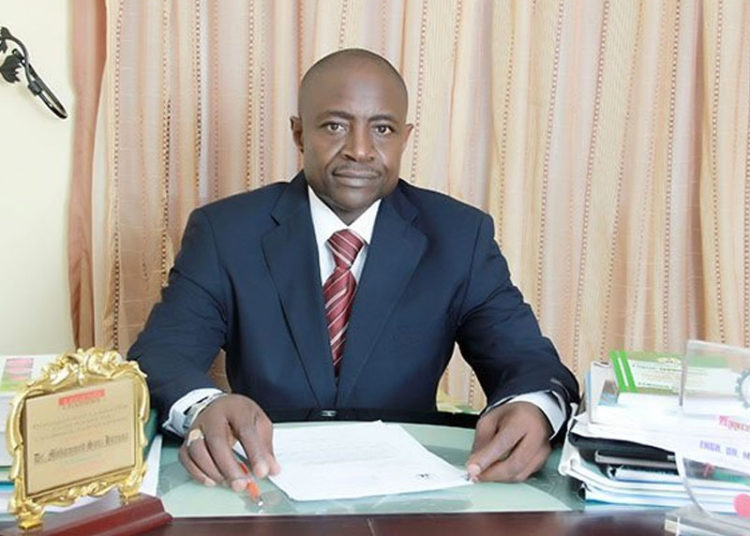Amid fresh threats of another industrial crisis by the Academic Staff Union of Universities (ASUU), the executive vice chairman and chief executive of the National Agency for Science and Engineering Infrastructure (NASENI), Prof. Mohammad Sani Haruna, has proffered solutions on the recurring pay package crisis in the Ivory Towers.
Among others, Haruna called for the decentralisation of the University Salary Structure under which lecturers would negotiate on a case-by-case basis with their institutions’ Governing Councils.
Haruna further said lecturers should be paid by contact hours and remunerated according to the impact of their output.
The NASENI boss said the Nigerian varsity system ought to grow to a level where lecturers would earn more than vice chancellors or political office holders if their works attract funding.
He, however, said the attitude of some teaching staff leaves much to be desired.
Haruna spoke at Ahmadu Bello University (ABU) during the launch of four books and celebration of excellence by Prof. Aminu Ladan Sharehu, a professor of public administration.
He said: “Let me advocate that University Salary Structure and indeed all tertiary institutions should be decentralised in such a way that lecturers are paid for productivity hours.
“Salaries to be negotiated on a case-by-case basis with the Governing Council and according to the capacity and performance of the lecturers and the universities.
“Yes, payment of living wages is important, but it does not make sense to pay the uniform salaries for lecturers in Damaturu, Birnin Kebbi, Lagos and Port Harcourt where cost of living is not the same.
“Lecturers should be paid by contact hours and remunerated according to the impact of their output. They can earn more than a Vice Chancellor, or Political Office Holders if their work attracts funding from private sector or other sources or impact attracts glories to their institutions.
“By these, I am advocating decentralized unions; both ASUU and NASU are out of tune with reality. Each institution has its local union having a contract with the Governing Council.”
He said it was worrisome that universities are not solving any socio-economic challenges of the communities in their catchment areas.
Haruna said universities have no linkages with industries and relevant research organizations.
He said the attitude of some teaching staff leaves much to be desired.
He added: “As an academician myself, let me confess that the attitude of some teaching staff leaves much to be desired. Some lecturers are not even qualified or suitable to teach courses assigned to them. Most have no Professional Teaching Qualification, most have no fashion for teaching and are in the profession only as a ‘lasting job alternative’.
“I have seen teachers who recycle the lesson notes given to them when they were students three to four decades earlier. How can the products of such processes be relevant in today’s dynamic and digital world?
“Lecturers are not accountable in most public institutions for absenteeism and for failure to adhere to planned timetables and for non-execution of practical structure in their syllabus. Corruption and sexual harassment are generally unchecked leading to half-baked graduates.
“Our universities are not solving any socio-economic challenges of the communities in their catchment areas and have no linkages with industries and relevant research organizations. Most cannot attract any research fund because need-oriented research and market driven research is not in their culture. I bet some lecturers can fail the very exam they are setting for their students.
“Lecturers of higher institutions no longer spend vacations in the industries to update their knowledge. What is disheartening is that graduation days or periods of many bright students are sometimes unreasonably delayed by lazy and non-supervised lecturers with negative consequences on the career progression of affected students especially in ABU. The problems are many,” he said.




